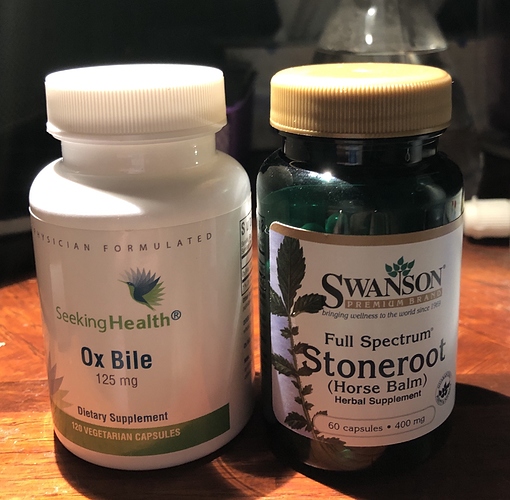Been on Keto a week… started getting muscle spasms and twitches… one in particular in my shoulder that radiates up into the left side of my head near my temple… any help? would be appreciated
Spasms and twitches
Welcome to the forum =).
It sounds like you need Electrolytes, it should solve this!
I take Magnesium Citrate Tablets, and Apple Cider Vinegar Tablets and eat Pink Himalyan Salt and then drink a lot of water after I put it on my tongue directly… but you can also just put it all into water and drink it. The above recipe is great for that =).
Thanks so much I will give this a shot… I do suffer from high blood pressure will this effect my blood pressure?
Keto should bring down your blood pressure -many of us on here had high blood pressure pre-Keto and it came down quickly. You will probably find once you are on Keto over time, your doctor will be even able to take you off of the medications =)). Keto has so many benefits beyond just the weight loss aspect! It is an awesome eating lifestyle.
You have also found the most helpful, friendly forum on the internet that I have ever come across, and we are all trying to help each other in our Keto journeys, so if you have any other questions, please don’t hesitate to ask. There are many people here that want to help you succeed =).
 thanks so much I’m glad to be here… my goal is to get down to eating meat 2 times per week and mostly veggies and also eventually no dairy is this a good plan or no?
thanks so much I’m glad to be here… my goal is to get down to eating meat 2 times per week and mostly veggies and also eventually no dairy is this a good plan or no?
Keep your electrolytes up, and try to keep carbohydrates below 20g daily. It is just a guideline most beginners to keto use, as it will ensure you do achieve ketosis. Later, your body may or may not be able to get away with eating more and still stay in keto. Whatever carbohydrate calories you’ve eliminated, replace with Fat calories.
Taking a couple of Tums or calcium carbonate helps if I get twitchy. Along with minding my other electrolytes. Hope you get it resolved soon.
Your symptoms almost sound like the formation of gallstones (phrenic nerve irritation?) (your description also reflects my own personal experience with this also)
May want to add a little lemon juice to your ketogenic dietary regimen to prevent them i.e. lemon water?
References:
[1] “…Lemon juice and other juices high in citric acid and vitamin C have been used by themselves or combined with olive oil and Epsom salts to reduce calcifications in the gallbladder and kidneys…”…More
[2] Not ENOUGH FAT in the diet is what causes calcium oxalate stones to form in the first place?
DATA:
Stoneroot & Ox Bile helps dissolve them also:
I’d agree on the electrolytes but want to add that pain radiating from shoulder to temple could be the trapezius - maybe google search some gentle trapezius stretches if the electrolytes don’t fully resolve it.
I have the twitching and spasms sometimes and salt is what fixes it, right away. I had that same shoulder problem about ten days ago. Super hot long shower and sleeping with one thin pillow fixed that, too many pillows can tweak your neck in a bad way. 
Keto should lower your blood pressure. One of the reasons too much carbohydrate raises BP is that insulin interferes with the production of nitric oxide, which is one of the principal regulators of blood pressure. As the production of NO increases with the drop in insulin, blood pressure comes down. My blood pressure dropped from 138/95 to 112/70 after I went keto.
Bear in mind that the healthy daily sodium intake for everyone, even people with high blood pressure, lies within the range of 3-6 grams, which translates to 8-15 grams of table salt. If your hypertension is the salt-sensitive type, try to stay within this range, as the risk curve for salt-sensitive hypertensives rises fairly steeply for daily intakes outside the sweet spot.



